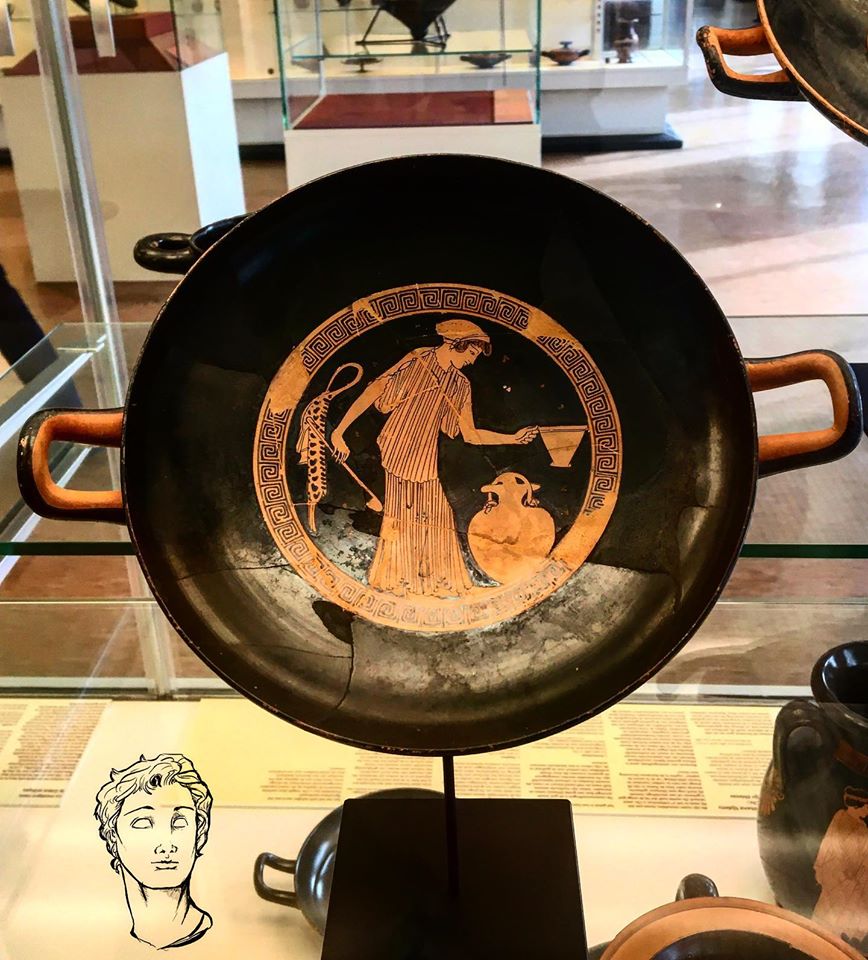Whichever way you look at it, when you talk about the Hellenistic world, most people immediately think of Alexander the Great. And how could they not? His deeds have captured the imagination for millennia. Whether it is his extremely fast march to India or the ease with which he inspired loyalty in his soldiers and loved ones: generals, historians, heads of state and many others have sought their inspiration from this Macedonian king. In fact, the hype around Alexander and his person is so great that sometimes the line between the real man and the myth surrounding him is very fine. But what does he have to do with this series on myth and polis?
A few weeks ago, I read the following statement on Twitter: ‘Alexander the Great was actually a woman and the male writers of antiquity concealed this fact in order to negate her achievements’. While I greatly admire the creativity behind this and find the idea of Alexandra the Great an interesting concept, I think it is safe to say one of the certainties we have about Alexander the Great is that he was a man and reigned as King of Macedon. The image of Alexander that has come to us is a combination of many different elements: the interpretation of his deeds and personality in the literary sources – which were made several centuries after the real man lived -, his image on the tetradrachms of the diadochs and various busts that have been preserved. But Alexander’s image of himself also changed according to the context. He easily assumed different guises according to the people he wanted to conquer during his march throughout the former Persian Empire. Think of the ease with which he took on the mantle of the son of Ammon in the episode at the oracle of Siwah as part of his legitimate recognition as the new pharaoh of Egypt.
Myth and mythological affiliations play an important role in the creation of this image of Alexander the Great. As we have already seen in several examples of the last articles, Alexander the Great also used his descent from well-known mythological figures to facilitate the conquest of certain cities and territories. After all, it was a good alternative to yet another military campaign and the violence that went with it. Alexander’s use of the kinship myth therefore had a pragmatic edge to it and was mainly used when the context and the target audience allowed it. Alexander was smart enough to realise that invoking mythological relationships through Greek mythological heroes and gods made little sense among non-Greek peoples, who were completely unfamiliar with this custom. There are, however, some examples from India and other non-Greek peoples where Alexander does invoke this tradition.
So which kinships did Alexander rely on? There are actually two major lines of kinship that existed before this birth. On his father’s side he would have been descended from Heracles through Perdiccas, a descendant of Temenos, a famous king of Argos and the great-grandson of Hyllos, the grandson of Heracles (Diod. 17.4.1.) The founder of Alexander’s dynasty, Alexander I (497-454 BC) already claimed this when he participated in the Olympic Games in 496 and it was never really questioned after that. On his mother’s side he would be descended from Achilles. Alexander’s mother Olympias came from Epirus, where the Molossian dynasty ruled. They found the origin of their dynasty in the figure of Neoptolemos, the son of Achilles, who ended up in Epirus after the Trojan War with Andromache, the wife of Hector (Just. 11.3.1-2). They would also have derived the name of their dynasty from the son of Neoptolemos and Andromache, Molossos. As if this were not enough, the following idea also came about during Alexander’s conquests: he was in fact the son of Zeus, which was confirmed by the oracle of Ammon – who could be equated with Zeus. With such an impressive arsenal of mythological ancestors, it should come as no surprise that Alexander made eager use of them when it helped him achieve his ultimate goal: the creation of one great multicultural empire. But more on that next time.
 This is already the fifth post in a series of twelve which dives into the ways in which the ancient Greeks used their mythological past as a diplomatic tool in their relationships with others. This series is written in collaboration with Hippocrene – een Mythologisch Genootschap; where you can find a Dutch version of the post every month. Hippocrene a young association committed to bringing together academics, artists and interested parties to learn about mythology. Follow them on Facebook to keep up with their activities.
This is already the fifth post in a series of twelve which dives into the ways in which the ancient Greeks used their mythological past as a diplomatic tool in their relationships with others. This series is written in collaboration with Hippocrene – een Mythologisch Genootschap; where you can find a Dutch version of the post every month. Hippocrene a young association committed to bringing together academics, artists and interested parties to learn about mythology. Follow them on Facebook to keep up with their activities.




